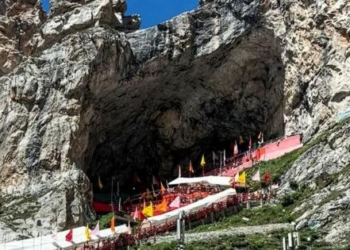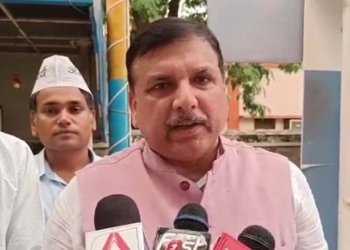Saifuddin Kitchlew Who: Dr. Saifuddin Kitchlew was a unique leader of the Indian freedom struggle and an advocate of social harmony. He was appointed as the head of the All India Khilafat Committee. The purpose of this movement was to establish religious unity in the Islamic world and to inspire Muslims to express support for the Turkish Caliphate. At that time the Muslims of India considered the Caliph of Türkiye as their religious guru.
Early life and education (Saifuddin Kitchlew Biography In Hindi)
Saifuddin Kitchlew was born on 15 January 1888 in an affluent Kashmiri Muslim family in Amritsar, Punjab. His family was quite prestigious in the field of education and business. Kitchlew completed his early education in Amritsar. After this he turned to Europe and England for higher education. Completed his graduation from Cambridge University. After this he went to London, where he obtained the degree of Bar at Law. He also studied in Germany and closely understood the society and politics there.
Saifuddin Kitchlew’s Contribution To Freedom Struggle
(Photo courtesy- social media)
Association with Indian National Congress- Saifuddin Kitchlu took active part in the independence movement in 1919 through the Indian National Congress. He became a close associate of leaders like Mahatma Gandhi, Jawaharlal Nehru and Maulana Abul Kalam Azad.
Opposition to Rowlatt Act- In 1919, the British government enacted the Rowlatt Act, a law restricting freedom of the press and civil rights. Kitchlew opposed this unjust law and led a widespread mass movement against it.
Jallianwala Bagh massacre- On April 13, 1919, British General Dyer ordered firing on peaceful protesters at Jallianwala Bagh in Amritsar, killing hundreds of innocent people. After this incident, Saifuddin Kitchlew vowed to intensify the freedom struggle. During this incident, he He was arrested, and his arrest was followed by massive protests in Punjab.
Role in non-cooperation movement- Kitchlew played an active role in the non-cooperation movement (1920) started under the leadership of Mahatma Gandhi. He launched a massive public awareness campaign against the British administration and inspired people to adopt indigenous clothes and boycott foreign clothes.
Social reformer form of Saifuddin Kitchlu
(Photo courtesy- social media)
Secular viewpoint- Kitchlew always emphasized on Hindu-Muslim unity. He worked to maintain communal harmony during the freedom struggle.
Propagation of education- He considered education as an important means of social reform. He wanted every person to be educated and aware of his rights.
Advocacy of women’s rights- Kitchlew advocated women’s education and their rights. She believed that women’s participation in the freedom struggle was very important.
important achievements
Contribution to All India Congress- Saifuddin Kitchlew became the President of the annual session of the Indian National Congress in 1924. He promoted the strategies of freedom struggle from this platform.
Establishment of Kitchlu Committee- After the Jallianwala Bagh massacre, Kitchlew formed the Kitchlew Committee to investigate the incident and condemn the British government.
Promotion of Swadeshi movement- He played an important role in promoting the boycott of foreign textiles and the use of indigenous products.
Cultural and religious harmony- Kitchlew always emphasized on maintaining communal harmony and worked against religious divisions.
End of Khilafat Movement
When Turkey decided to form a secular government, the Khilafat movement failed in India. This development made Kitchlu aware of the limits of Islamic solidarity. After this he tried to promote united nationalism in the atmosphere of communal disharmony.
He clearly stated, “India’s greatest enemy is British imperialism, and it can be defeated only by the united efforts of Hindus and Muslims.” Kitchlu was a staunch opponent of partition on religious lines. He argued that if India was partitioned, the economic and social condition of Muslims would become much worse.
Conflict with the British government
(Photo courtesy- social media)
Kitchlew was arrested several times during the freedom struggle. His arrest further outraged the public and strengthened the independence movement. The British government banned his speeches and movements. But he continued his struggle in every situation.
Life after independence- Saifuddin Kitchlu contributed to the making of the Constitution of independent India. Although he stayed away from active politics, he always worked on social and cultural reforms. He worked for peace and community harmony in his last years. Dr. Kitchlu strongly opposed the partition of the country. He said that nationalism is being surrendered to communalism. It is a different matter that his house in Amritsar was also burnt in the riots of 1947. Since then he was living in Delhi. In the last years of his life, he was closer to the left parties.
Remembering his contribution, the Jallianwala Bagh Memorial in Amritsar is dedicated to his bravery and sacrifice. The Saifuddin Kitchlu Award was instituted to honor those who have contributed in the fields of art, literature and education. They are still active in the struggle for freedom, equality and Symbol of brotherhood. His life inspires patriotism and sacrifice to every Indian.
Purna Swaraj and Kitchlu’s thinking
Both Pandit Nehru and Saifuddin Kitchlu were supporters of complete Swaraj. Kitchlew believed that Indian independence was possible only through the self-reliant efforts of Indians.
Lenin Peace Prize
Saifuddin Kitchlew was awarded the Lenin Peace Prize in 1952 for his contributions. He was the first Indian to receive this award. Death of Saifuddin Kitchlu- Saifuddin Kitchlu died on October 9, 1963. Even after his death, his ideology and contribution were immortalized in the history of the Indian freedom struggle. He remained in jail for about 14 years in his life. He was also a founding member of Jamia Millia Islamia.
Saifuddin Kitchlew was one of the great heroes of the Indian freedom struggle, who not only fought for freedom without caring for his life, but also promoted social reform and communal harmony. His sacrifice and struggle played an important role in India getting independence. His legacy teaches us that the path of patriotism, sacrifice and service is the sign of true leadership. Saifuddin Kitchlew’s life is a source of inspiration for every Indian and his story is a glorious chapter of the freedom struggle.
Kitchlew’s life is proof that true nationalism lies not only in political freedom but also in establishing peace, harmony and equality in the society.










